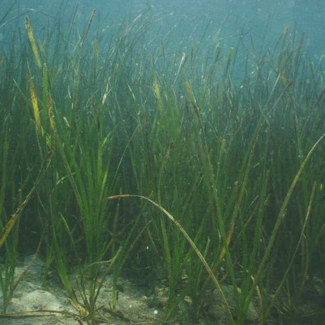
Unique research on CO2 capture by eelgrass to be led by the Port of San Diego
The Port of San Diego is conducting a study on the capacity of San Diego Bay’s eelgrass to provide a natural means of capturing and storing carbon dioxide (CO2). This project is among the unique carbon storage research that the U.S. Maritime Administration (MARAD) is supporting in the amount of $150,000 through its Marine Environmental and Technical (META program).
Eelgrass is one of the least studied coastal ecosystems, according to the port. More research is needed to understand how much carbon the eelgrass can store and how it can support efforts to mitigate greenhouse gas (GHG) emissions.
This study and partnership with MARAD are part of the port’s holistic approach to mitigating GHG and meeting California State requirements and the port’s Maritime Clean Air Strategy goals.
Eelgrass and other coastal “blue carbon” ecosystems have a unique ability to rapidly capture and hold large amounts of CO2 in their plants and soils. Like all plants, eelgrass absorbs CO2 and produces oxygen. Unlike land-based plants, however, eelgrass is submerged in salt water, which prevents the release of the CO2 back into the atmosphere. The carbon remains trapped in the eelgrass plants and underwater soils for thousands of years. While occupying much smaller areas, eelgrass can store carbon at rates 30 to 50 times greater than forests, according to researchers.
The one-year study will assess how much carbon is stored in San Diego Bay’s eelgrass and how much carbon the eelgrass will continue to capture into the future.